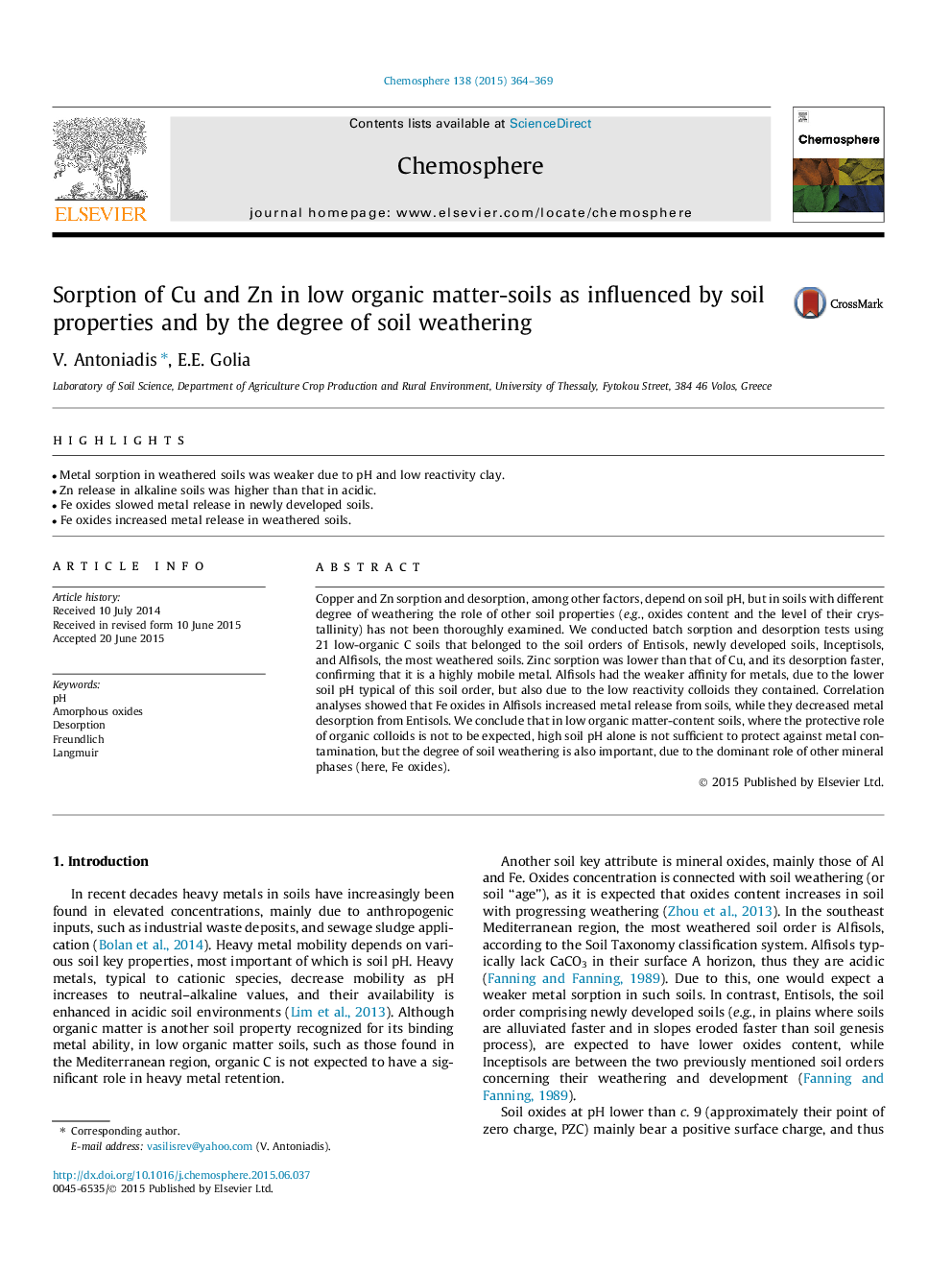| Article ID | Journal | Published Year | Pages | File Type |
|---|---|---|---|---|
| 6307483 | Chemosphere | 2015 | 6 Pages |
Abstract
Copper and Zn sorption and desorption, among other factors, depend on soil pH, but in soils with different degree of weathering the role of other soil properties (e.g., oxides content and the level of their crystallinity) has not been thoroughly examined. We conducted batch sorption and desorption tests using 21 low-organic C soils that belonged to the soil orders of Entisols, newly developed soils, Inceptisols, and Alfisols, the most weathered soils. Zinc sorption was lower than that of Cu, and its desorption faster, confirming that it is a highly mobile metal. Alfisols had the weaker affinity for metals, due to the lower soil pH typical of this soil order, but also due to the low reactivity colloids they contained. Correlation analyses showed that Fe oxides in Alfisols increased metal release from soils, while they decreased metal desorption from Entisols. We conclude that in low organic matter-content soils, where the protective role of organic colloids is not to be expected, high soil pH alone is not sufficient to protect against metal contamination, but the degree of soil weathering is also important, due to the dominant role of other mineral phases (here, Fe oxides).
Related Topics
Life Sciences
Environmental Science
Environmental Chemistry
Authors
V. Antoniadis, E.E. Golia,
